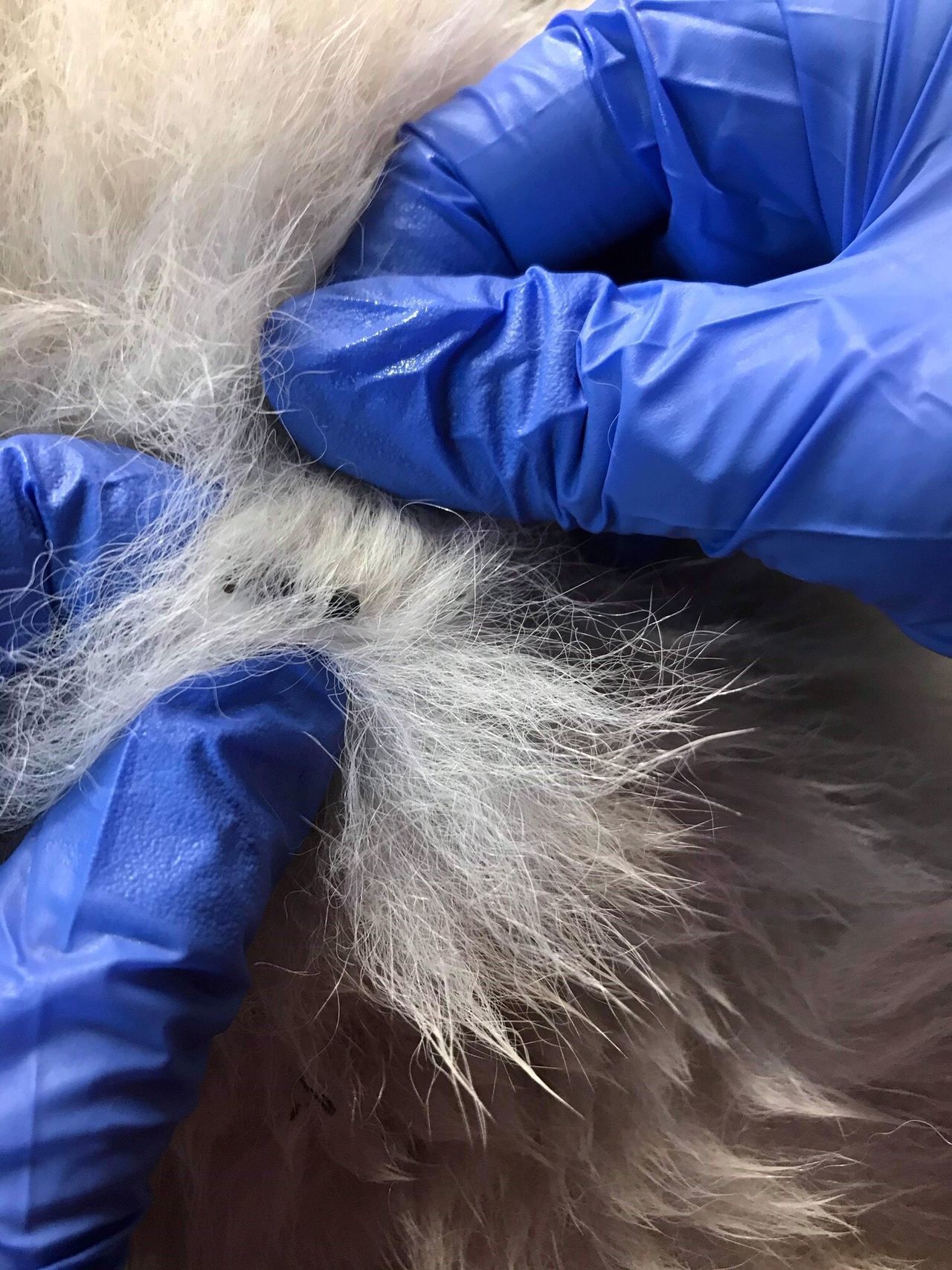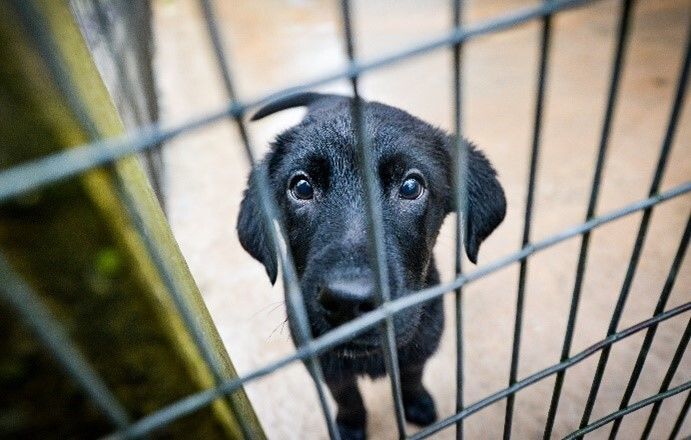New rules to clamp down on the “grim trade” of puppy smuggling and prevent cruelty to dogs are being proposed by the government.
The plans include raising the minimum age at which puppies can be imported from 15 weeks to six months and banning the importing of dogs with cropped ears or docked tails.
A ban on importing heavily pregnant dogs would also be brought in under the proposals, which aim to safeguard the welfare of thousands of dogs and puppies brought into the UK each year and are being put out for consultation.
More than 66,000 dogs were commercially imported into the UK last year, but evidence shows a recent rise in animals imported in low-welfare conditions and smuggling activity, the Environment Department (Defra) said.
 RSPCA
RSPCAThe number of young puppies intercepted for not meeting the UK’s pet import rules jumped from 324 in 2019 to 843 in 2020.
Incidents of cruel treatment including six underage puppies seized at the port of Dover after being found covered in sticky oil and suffering from diarrhoea, having been imported illegally from Romania, travelling in the back of a van for more than 24 hours.
In another case, four beagle puppies were found in the back of an abandoned vehicle in London, at just eight weeks old; tiny, hungry and dehydrated. They are believed to have been illegally imported from the Republic of Ireland.
Raising the minimum age for bringing puppies into the UK aims to ensure they are not separated from their mothers too early, which can put them at higher risk of developing illness or even dying.
The RSPCA has also recently reported a 620% rise in reports of dogs found to have their ears cropped in the past five years, a painful process banned in the UK since 2006 which involves surgically altering or removing a dog’s outer ears to make them look more aggressive.
The majority of these dogs are thought to have undergone the procedure abroad, and under the new rules they would be banned from entering the country, officials said.
Animal welfare minister, Lord Goldsmith, said: “Puppy smuggling is a grim trade, and we are determined to clamp down on it.
“Raising the minimum import age for puppies will help protect thousands of animals that are brought into the country each year and stop criminals looking to profit from the rise in demand for pets.
“We already have one of the toughest, pet travel, border checking regimes in the world and as an independent nation outside the EU we are going even further by preventing anyone from bringing in dogs which have undergone inhumane procedures such as ear cropping or tail docking.”
RSPCA chief executive Chris Sherwood welcomed the consultation, saying there had been a huge increase in the number of dogs being commercially imported into the UK as well as the rise in procedures such as ear cropping.
“These are major dog welfare issues that need addressing as a matter of urgency in order to protect dogs from unnecessary suffering and to protect the public from falling victim to criminals who are trying to cash in on these dogs’ value,” he said.
Owen Sharp, chief executive of Dogs Trust, which has spearheaded the campaign to crackdown on puppy smuggling, said the charity had cared for more than 2000 puppies seized at UK borders since 2015.
“We have seen puppies as young as four weeks old being smuggled into the country and dogs with open wounds from ear cropping as well as heavily pregnant dogs close to giving birth.
“We are pleased that the consultation has set out proposals to tackle these issues and hope it results in tougher penalties for these crimes, as currently only a handful of cases have ever been prosecuted and the existing penalties are, sadly, no deterrent,” he said.
The consultation was also welcomed by media vet and animal welfare campaigner, Dr Marc Abraham.
He said: “For decades, both the legal and illegal importation of young puppies has enabled and encouraged low-welfare breeding practices and dog exploitation across Europe, with puppies often separated from their mothers too early, then sent long distances often riddled with all kinds of disease, straight to their unsuspecting new owners in the UK.
“By introducing these positive dog welfare proposals we can make significant progress in the fight against these cruel practices.”
Follow STV News on WhatsApp
Scan the QR code on your mobile device for all the latest news from around the country


 RSPCA
RSPCA

























